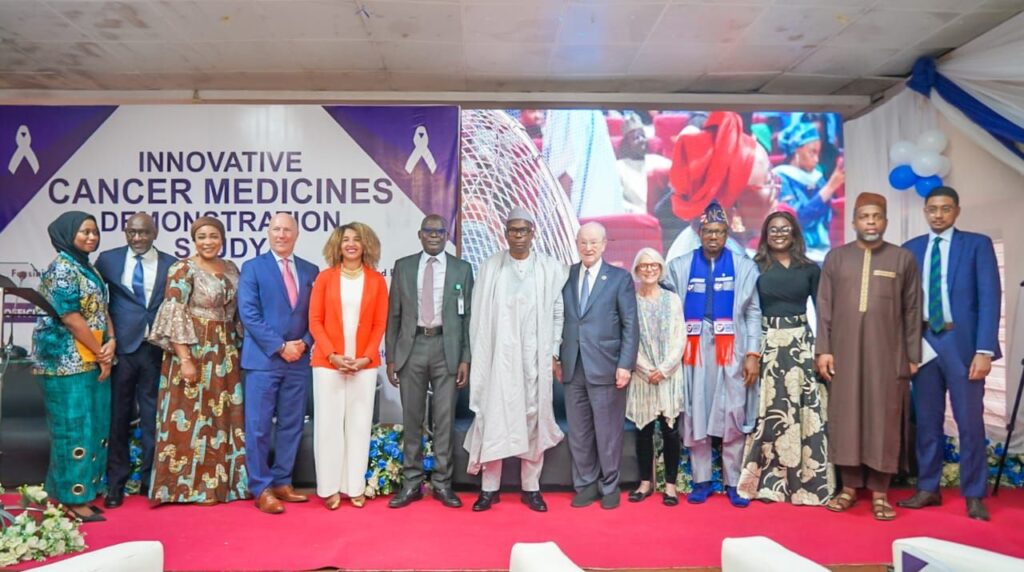In a move to tackle Nigeria’s growing cancer burden, the Federal Government has announced its highest-ever budget allocation for cancer treatment and prevention in the 2025 national budget.
The Minister of State for Health and Social Welfare, Dr. Iziaq Salako, made the disclosure during the formal launch of the Innovative Cancer Medicine (ICM) demonstration study on Tuesday at the National Hospital, Abuja. He noted that the initiative responds to alarming statistics, including nearly 5,900 annual deaths from colorectal cancer alone in Nigeria.
Dr. Salako explained that many of these deaths result from late presentation and limited treatment options. He emphasized that the government’s new strategy moves beyond a treatment-only approach to a comprehensive framework emphasizing prevention, early detection, and awareness.
“Today’s milestone, the enrollment of the first Nigerian patient in this initiative symbolizes hope. It demonstrates that patients in low- and middle-income countries no longer have to wait decades, losing lives before benefiting from lifesaving innovations available elsewhere,” he said.
Highlighting the burden of colorectal cancer, Salako noted that it is the second most common cancer among men and the fourth overall in Nigeria, with incidence almost tripling over the past four decades.
The ICM demonstration study, anchored at the National Hospital Abuja, introduces nivolumab, an immunotherapy drug that activates the body’s immune system to fight cancer, a therapy already saving lives globally. Dr. Salako described the study as a “proof of possibility” for delivering innovative cancer care safely, sustainably, and locally.
The project will also provide critical data on patient experiences, health system readiness, and infrastructure requirements necessary to scale such therapies nationwide, potentially shaping an African model for sustainable access to innovative medicines.
“This initiative aligns with the Federal Government’s National Cancer Control Plan and the Renewed Hope Health Agenda, prioritizing local research, early detection, access to diagnostics, and affordable innovative treatment,” Salako stated.
He added that the 2025 budget includes the largest-ever allocation for cancer infrastructure, reflecting a commitment not just to treatment but also to prevention, including awareness campaigns, lifestyle modification, immunization against vaccine-preventable cancers, and expanded screening services.
The Minister urged regulatory bodies to ensure protocols facilitate innovation while protecting public health, emphasizing collaboration between the Clinton Health Access Initiative (CHAI), Parker Institute for Cancer Immunotherapy (PICI), Bristol Myers Squibb, Roche, and the Federal Ministry of Health and Social Welfare as a model of global partnership and national leadership in improving cancer outcomes.















